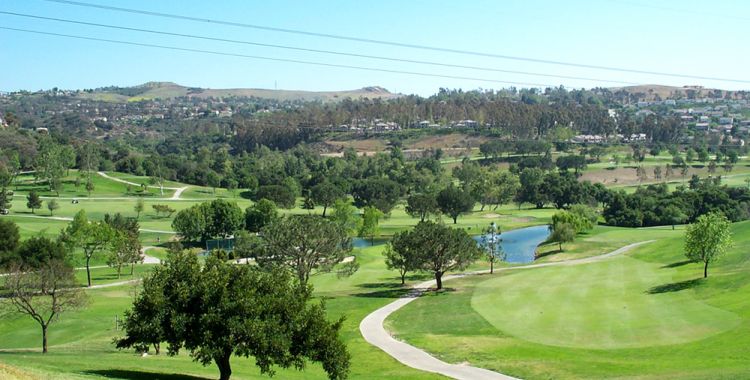
The Impact of Climate Change on Pest Control: Adapting to New Challenges
The Impact of Climate Change on Pest Control: Adapting to New Challenges
Climate change is a global phenomenon that significantly impacts the world of pest control. As temperatures rise, weather patterns shift and ecosystems change, pest species are adapting and finding new environments to thrive in.
The following will explore the effects of climate change on pest control, the challenges it presents, and the strategies and innovations that can help us adapt to this evolving landscape.
Changing Pest Distribution and Range
Climate change alters the geographic distribution and range of insect pest species. As temperatures warm, insect pests that were once confined to specific regions may expand their territories, moving into new areas where they were previously absent.
This expansion poses challenges for pest control professionals who must adapt their strategies to address these new and emerging insect species populations.
Altered Pest Life Cycles
Changes in temperature and precipitation patterns can disrupt the life cycles of pests.
Warmer winters may lead to decreased mortality rates, allowing pests to survive and reproduce year-round, and altered rainfall patterns can impact breeding and feeding behaviors of pests, leading to population fluctuations and changes in their behavior.
Extreme weather events often disrupt pest populations, causing them to inhabit property they may not have otherwise. Pest control strategies must consider these shifts to effectively manage and mitigate infestations.
Increased Pest Survival and Resilience
Climate change can enhance the resilience and survival capabilities of pests. Higher temperatures and increased carbon dioxide levels in the atmosphere can contribute to faster pest development, higher reproduction rates, an increase in crop pests, and enhanced resistance to pesticides.
This necessitates the development of new pest control approaches, including increased research into biological control and climate smart solutions that can counteract the adaptive traits of resilient pests.
Enhanced Disease Transmission
Certain invasive insect species act as vectors for diseases. Climate change can then catalyze their behavior, disease carrying, and population dynamics, facilitating the spread of vector-borne illnesses.
As a result, effective pest control becomes vital for pest management and safeguarding public health.
Agricultural Effects
Climate change is not only altering temperature and precipitation patterns but also exacerbating the challenges of pest control in agriculture, thereby threatening crop production and food security.
As temperatures rise, pests such as insects, fungi, and weeds are finding favorable conditions to thrive in and multiply. This surge in pest populations poses a risk to agricultural crops, leading to yield losses and reduced food production. To avoid crop disturbance and food insecurity, it becomes crucial to prioritize effective pest control measures that can adapt to changing pest dynamics.
By implementing integrated pest management practices, utilizing advanced technologies, and promoting sustainable agricultural approaches, pest control can mitigate the impact of insect pests, protect crop yields, and ensure food availability for future generations.
Adapting Pest Control Strategies
To address the challenges posed by climate change, pest control professionals are adopting innovative and sustainable strategies. Integrated Pest Management (IPM) approaches, which combine multiple pest control methods, are becoming increasingly important.
These include strategies such as using biological controls, pheromone traps, habitat manipulation, and targeted pesticide application to minimize environmental impact while effectively managing pests.
Technological Advancements in Pest Control
Advancements in technology are revolutionizing pest control practices.
Remote monitoring systems, data analytics, and predictive models enable early detection and timely intervention. Internet of Things (IoT) devices, such as smart traps and sensors, provide real-time pest activity data, facilitating targeted pest control measures; and drones and satellite imagery aid in identifying pest hotspots and monitoring large-scale infestations.
Community Involvement and Education
Engaging communities and promoting awareness about climate change and its impact on pest control is crucial. Educating the public about preventive measures, identifying early signs of infestations, and reporting pest sightings helps in early intervention.
Encouraging sustainable practices like proper waste management and reducing standing water can also minimize pest breeding grounds.
Adapting to New Challenges
Climate change poses new challenges to pest control, necessitating adaptive strategies and innovative approaches. By understanding the impact of climate change on pest behavior, embracing sustainable practices, and leveraging technology and community involvement, we can effectively manage pests while mitigating their impact on ecosystems, human health, and the environment.
Adaptation and collaboration are key navigating this ever-changing landscape and striving for effective and sustainable pest control practices in the face of climate change.
Pest Friends Pest Control Services
Pest Friends is your locally owned and operated pest control service working to keep your home and business pest free. Our top-rated, five-star staff has the tools and expertise to fight these problematic pests by offering effective pest control solutions around your property. They understand the behaviors and characteristics of these pests, so they know the right strategies for getting rid of them.
Contact us at (520-999-2847) to schedule an inspection of your property on your preferred date of service, find out what pests may be lurking in your home, receive a free inspection, and to learn about your options for protecting your property.